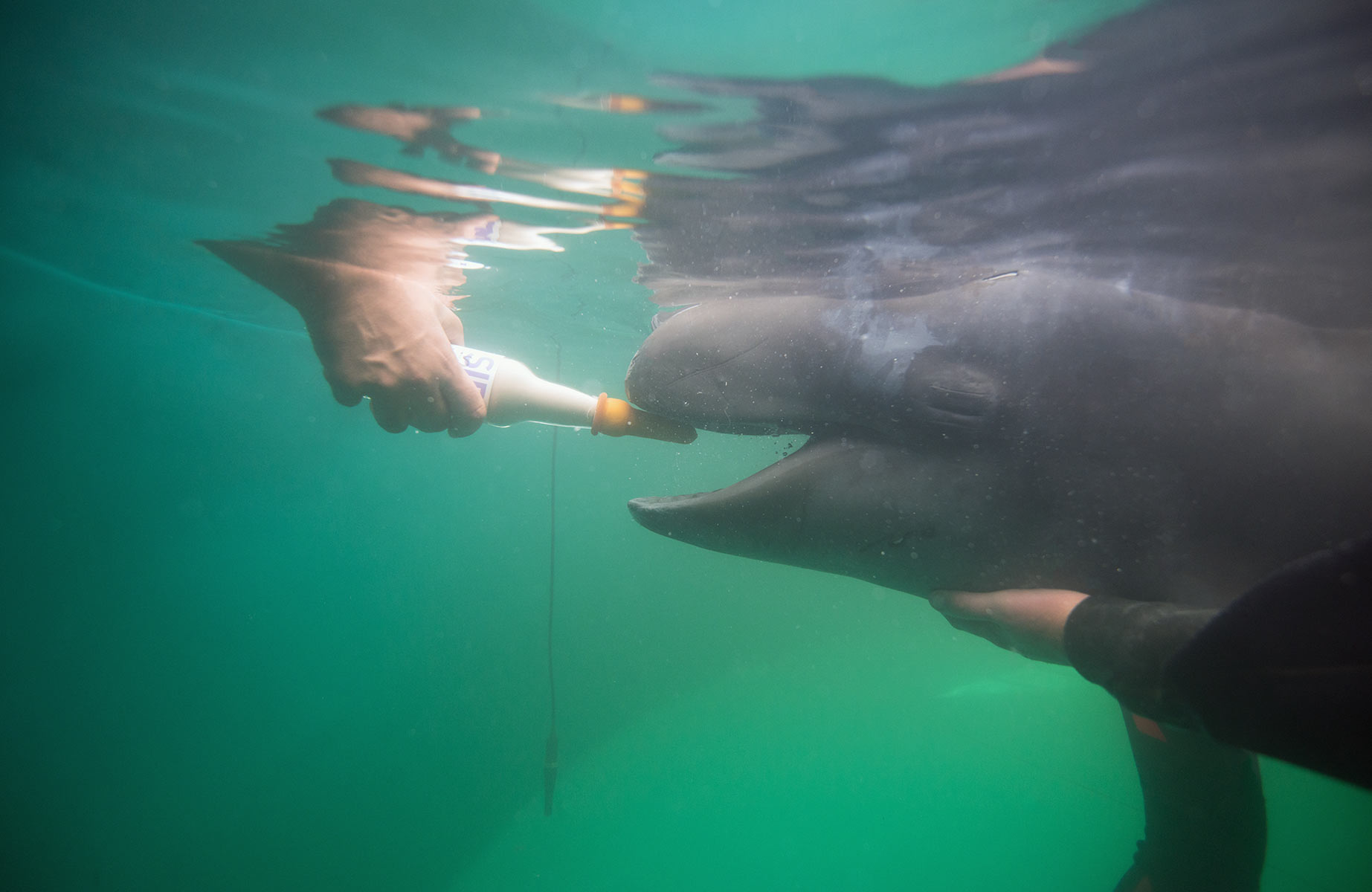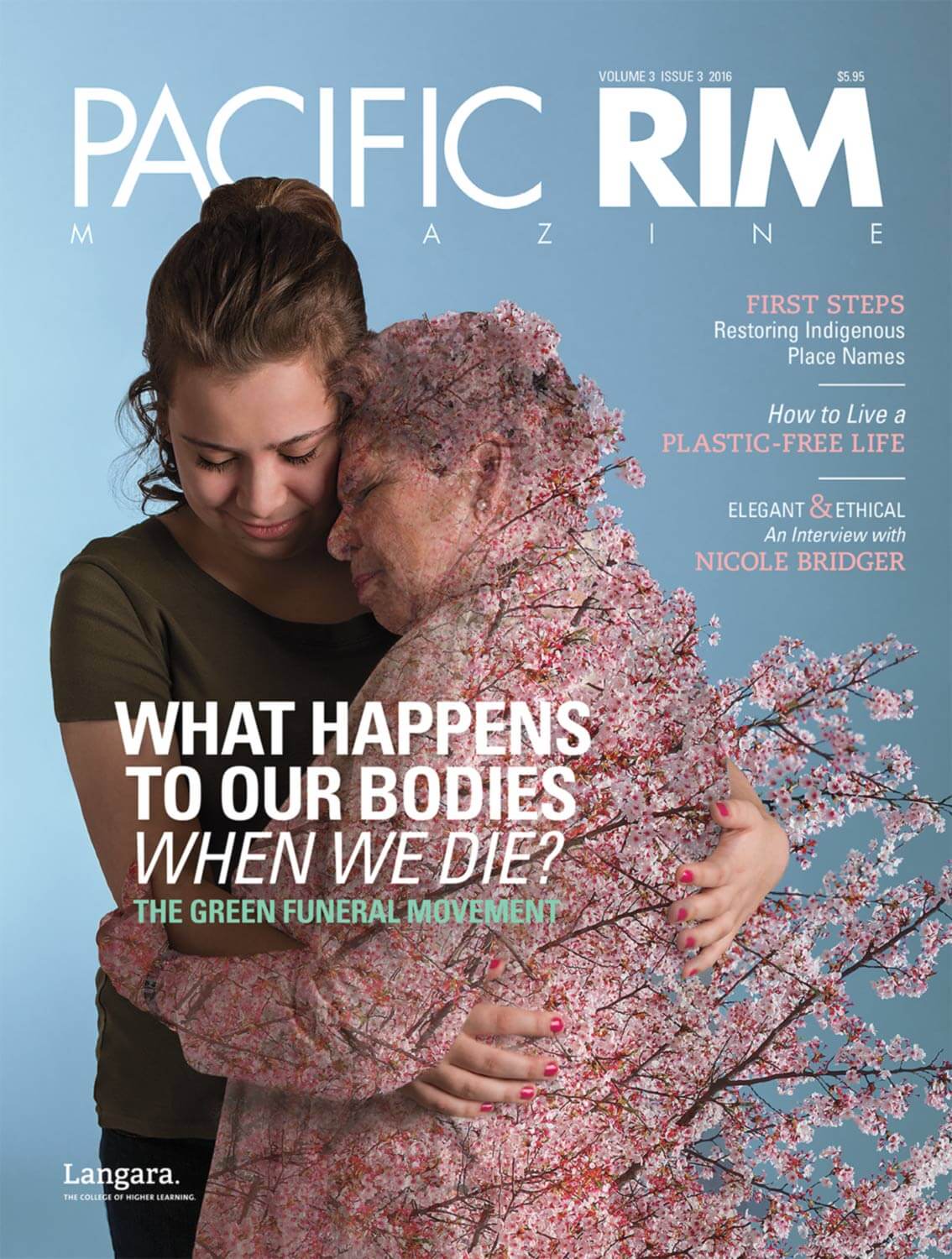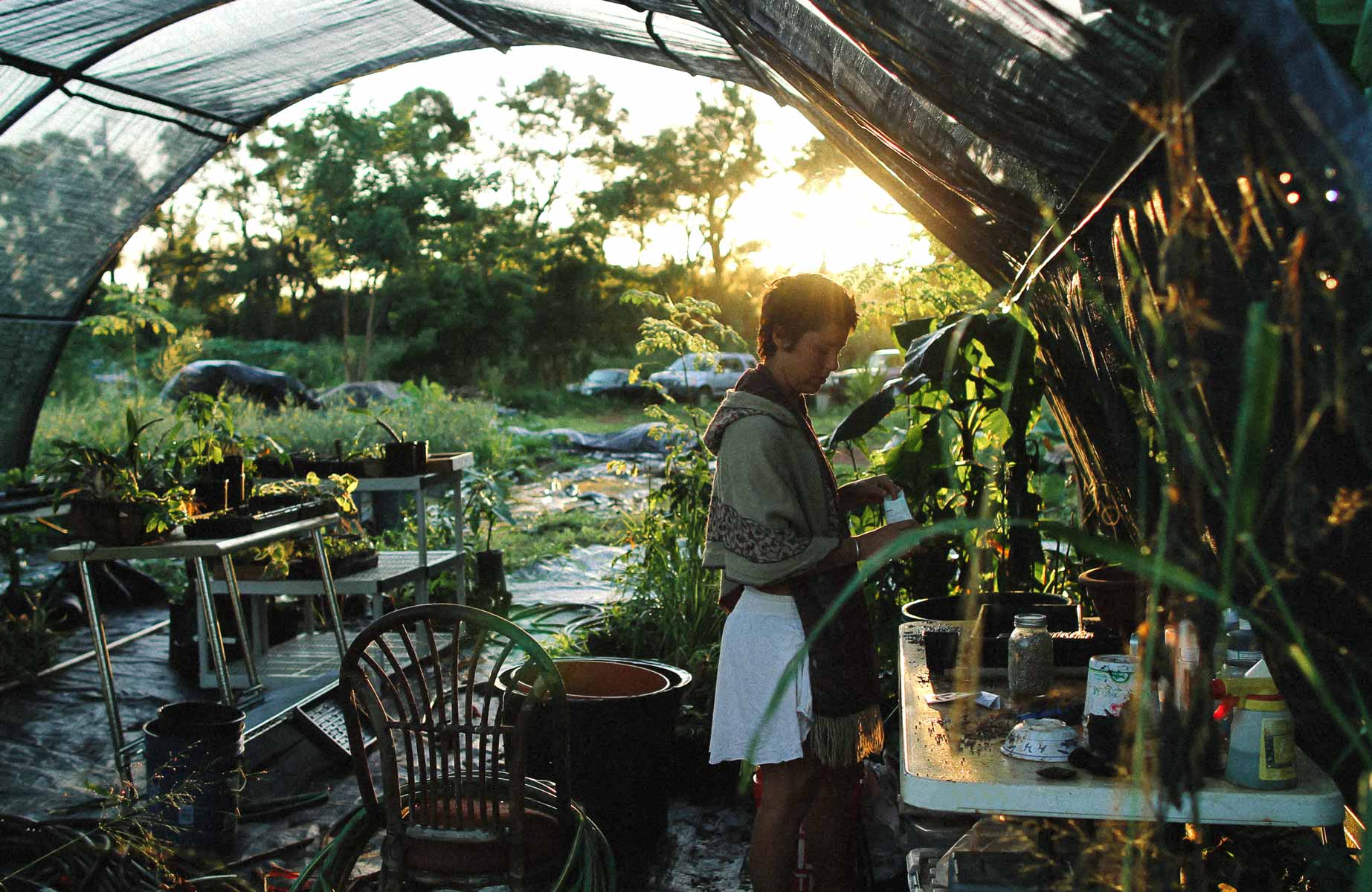When Chester arrived at the Vancouver Aquarium’s Marine Mammal Rescue Centre facilities, his prognosis was grim. Aquarium Veterinarian Dr. Martin Haulena took stock of the animal’s injuries.
Chester was less than two months old, had no erupted teeth, and would have still been nursing. He could not feed, he could not swim.
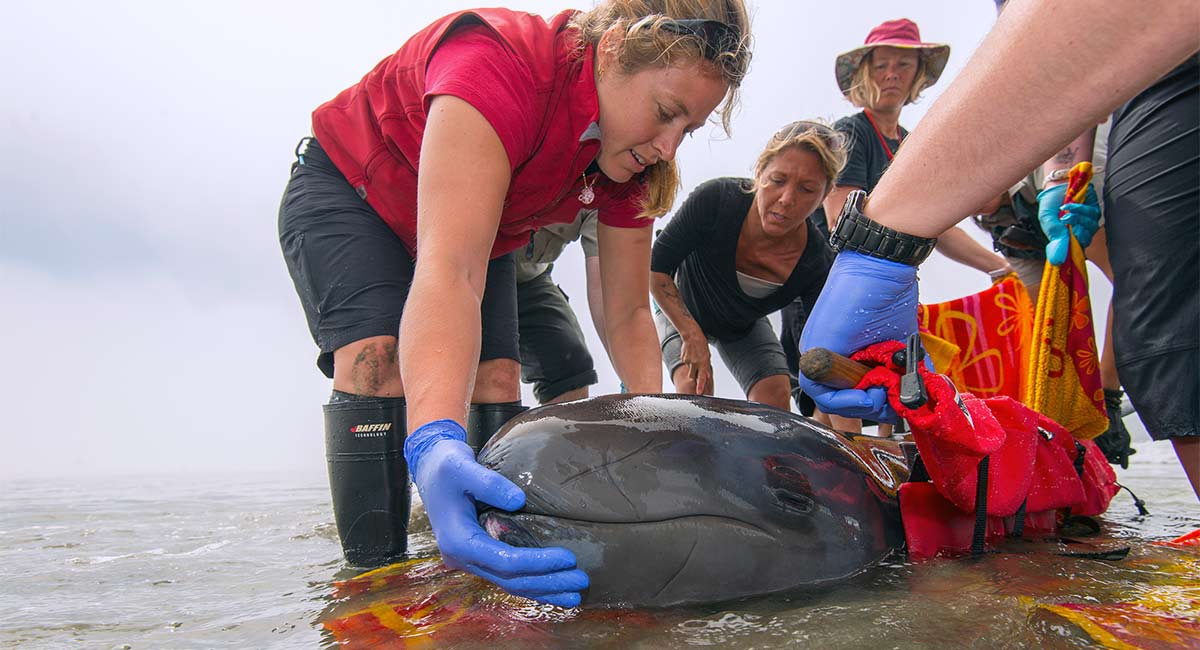
False killer whale treatment protocols were unclear at the time, so the team reached out to the international community for guidance.
“Of the three or four other false killer whale calves that have stranded around the world, not one survived,” notes Dr. Haulena. “So for Chester to survive is a huge success. But it’s not like we didn’t learn from what other people have done. It’s a big community out there that all works together.”
The first days of Chester’s treatment were critical. Unable to swim without assistance, Chester was circulated through the recovery pool non-stop over a 24-hour period by staff and volunteers. He was then supported in a specially designed sling as he gained strength.
According to Dr. Haulena, “Cetaceans that strand have about a 10 per cent chance of survival once they hit the beach.”
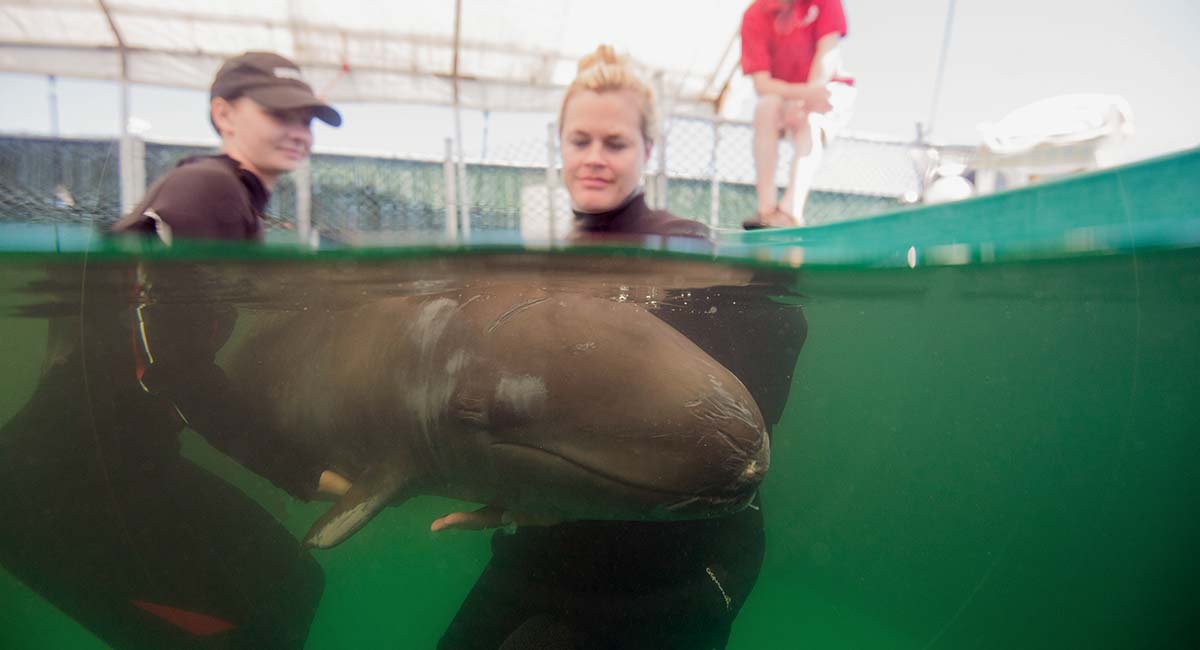
But Chester not only survived, he thrived, and at two years old, he is the longest living rescued false killer whale in captivity.
Chester’s recovery against the odds is a testament to the abilities of Dr. Haulena’s team. “He is a symbol of how proud I am of our incredible team that puts heart and soul into every single animal, every single day,” says Haulena, “He’s why we have a Vancouver Aquarium. You can’t save lives like Chester’s unless you have folks that know what they’re doing and are ready to do what they do best at the drop of a hat.”
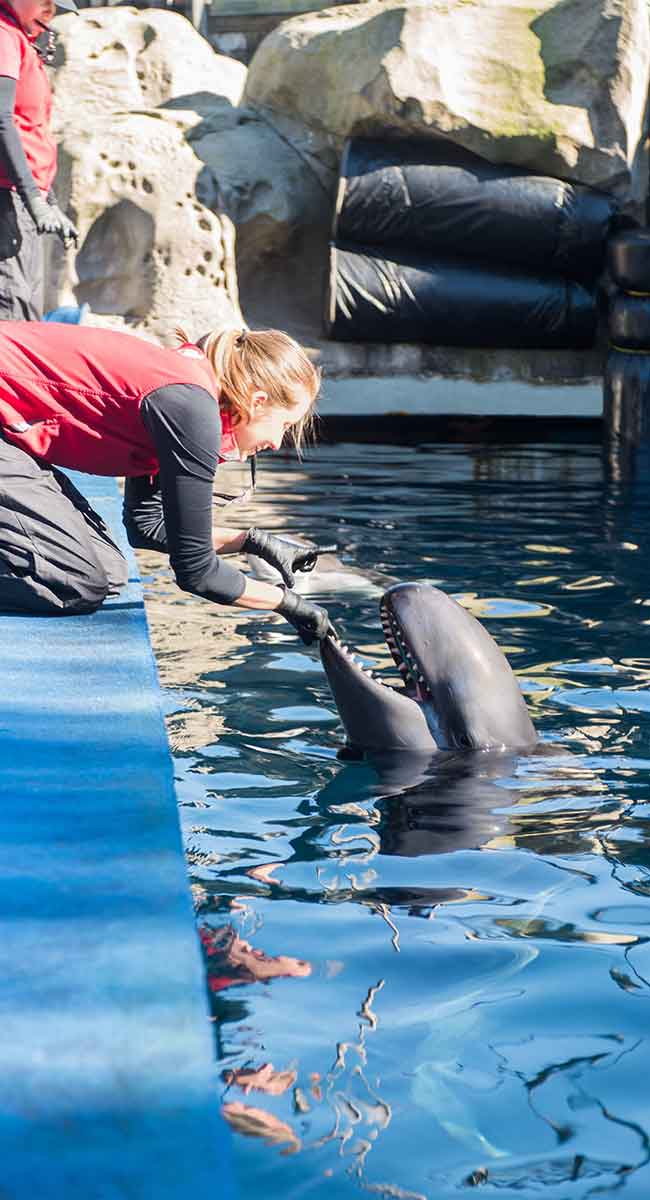
Photo by Kaili’i Smith





